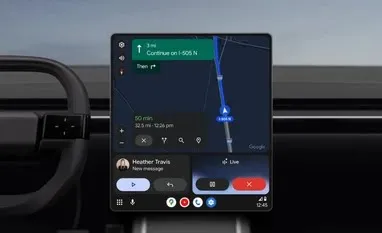Google has begun introducing its Gemini AI assistant to Android Auto, marking a significant step in the company’s push toward AI-enhanced mobility experiences. The rollout, currently reaching select users, is expected to transform in-car connectivity with hands-free intelligent assistance, real-time responses, and expanded support for messaging, navigation, and on-the-go productivity. The upgrade is designed to improve driver convenience and safety by reducing reliance on manual smartphone interaction. As automotive technology shifts rapidly toward AI-driven interfaces, Google’s move signals an increasingly competitive landscape in connected-vehicle ecosystems, where integrated voice and AI experiences are becoming essential differentiators for automakers and tech giants alike.
---
Gemini Expands Beyond Smartphones
Google’s decision to bring Gemini to Android Auto represents an evolution of its AI strategy, extending the assistant beyond handheld devices and into the vehicle environment. Early users report access to features such as natural-language interaction, more seamless messaging support, and smart suggestions while driving.
This update positions Gemini as a core ecosystem tool, gradually replacing traditional Google Assistant capabilities in select environments as the company centralizes its AI offerings.
---
Enhancing Safety and Convenience on the Road
The integration focuses on ensuring hands-free functionality to minimize driver distraction. Gemini’s live support capability allows users to dictate messages, schedule reminders, retrieve information, and access navigation prompts — all through conversational voice commands.
AI-driven processing also aids in context-specific assistance, meaning the system can adapt to real-time driving situations and user preferences, improving both efficiency and user experience.
---
Part of a Broader AI Mobility Push
The introduction of Gemini into Android Auto underscores a wider industry trend where automakers and technology firms are striving to embed advanced AI systems into vehicles. The smart mobility sector is rapidly evolving, with AI-powered infotainment systems, voice-first interfaces, and connected services emerging as market standards.
For Google, this rollout strengthens its position against competitors offering similar AI in-car experiences. Gemini’s presence in vehicles builds a bridge between smartphones, smart dashboards, and future autonomous driving interfaces.
---
Gradual Deployment and User Access
The feature is being deployed gradually and may appear first for select regions and compatible vehicle systems. Users must ensure their Android Auto software is updated to access Gemini features as they become available. Further enhancements are expected in the coming months, with Google likely to introduce new capabilities based on driver feedback and performance insights.
---
Looking Ahead
Gemini’s arrival in cars highlights the continuing fusion of artificial intelligence and transportation technology. As vehicles become smarter and more connected, AI tools like Gemini are poised to become everyday driving companions, enhancing convenience without compromising safety.
For consumers, this development marks the beginning of a new era where voice-enabled AI could redefine how drivers interact with their digital world — seamlessly, intuitively, and on the move.

Comments